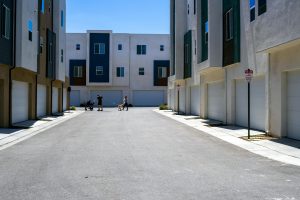The Psychology of Neighborhood Selection: Factors Beyond Home Features
>
In today’s real estate market, it’s not just about finding the perfect home. The neighborhood you choose to live in can play a huge role in your overall satisfaction and well-being. It’s no surprise that when searching for a new home, people often focus on the home’s features such as square footage, number of bedrooms, and updated kitchens. However, it’s important to consider the psychology behind neighborhood selection and the factors that go beyond the physical characteristics of a home. Let’s delve into the psychology of neighborhood selection and uncover the factors that can truly make or break your home buying experience.
The Power of Perception: First Impressions Matter
When we think of the psychology of neighborhood selection, first impressions come to mind. Driving through a potential neighborhood can leave a lasting impact on our perception of the area. From the cleanliness and upkeep of the streets to the types of homes and businesses, these first impressions can greatly influence our decision on whether a neighborhood is desirable or not.
Research has shown that the attractiveness of a neighborhood can affect our perception of the people who live there. In a study published in the Journal of Environmental Psychology, participants were shown pictures of different types of neighborhoods. Those who viewed more attractive neighborhoods rated the residents as more friendly and trustworthy compared to those who viewed less attractive neighborhoods. This highlights the importance of curb appeal when it comes to the psychology of neighborhood selection.
Social Connections: The Importance of Community
Humans are social creatures, and the need for a sense of community is deeply ingrained in our psychology. When searching for a new neighborhood, we often look for a sense of belonging and connection with our neighbors. The quality of social connections within a neighborhood can greatly impact our overall well-being and happiness.
In a study published in the Journal of Clinical Epidemiology, neighborhoods with a strong sense of community have been linked to better physical and mental health outcomes. This is because social support and connections can reduce stress, increase feelings of safety, and promote healthy behaviors.
The Role of Amenities and Events in Fostering Community
One way to foster a sense of community in a neighborhood is through shared amenities and events. Amenities such as parks, community centers, and pools can provide opportunities for residents to interact and form connections. Similarly, neighborhood events such as block parties, holiday celebrations, and charity drives can bring neighbors together and promote a sense of belonging.
When searching for a new neighborhood, consider the availability of amenities and the frequency of community events. These are signs of a community that values social connections and can greatly contribute to your overall satisfaction with your new home.
Safety and Security: The Need for a Sense of Protection
In the psychology of neighborhood selection, safety and security are top priorities for most homebuyers. Feeling safe in your own home and community is crucial for peace of mind and well-being. When evaluating a potential neighborhood, it’s important to consider crime rates, the presence of security measures, and the overall “feel” of the area.
Feeling safe and secure in one’s neighborhood is essential for mental health. In fact, a study published in the Journal of Community Psychology found that residents in safer neighborhoods reported better mental health than those in more dangerous neighborhoods. This underscores the importance of safety and security in the psychology of neighborhood selection.
The Influence of Schools and Education
For families searching for a new home, school district and education are often top priorities. Education not only impacts a child’s academic success but also their overall well-being and future opportunities. As a result, the quality of schools in a neighborhood can greatly influence a homebuyer’s decision.
Research has shown that school quality and student outcomes are influenced by the characteristics of the surrounding community. This includes factors such as parental involvement, neighborhood safety, and access to resources. Therefore, in the psychology of neighborhood selection, it’s important to consider the impact of schools and education on the overall well-being of the community.
Educational Opportunities Beyond Traditional Schools
It’s important to note that education extends beyond traditional schooling. The availability of libraries, community centers, and after-school programs can also play a role in a child’s learning and development. When searching for a new neighborhood, consider the educational opportunities available beyond the traditional school system.
Overall, the psychology of neighborhood selection goes far beyond the physical features of a home. From first impressions to a sense of community and safety, these factors can have a significant impact on our well-being. When searching for a new neighborhood, it’s important to consider the power of perception, the value of social connections, the need for safety and security, and the influence of education. By taking these factors into account, you can find a neighborhood that truly feels like home.









